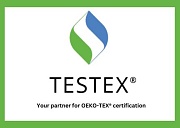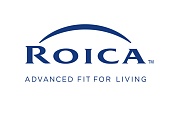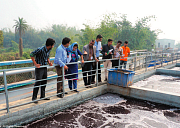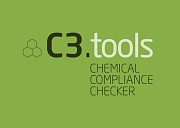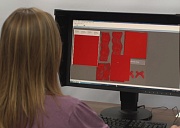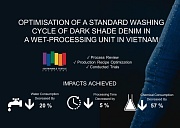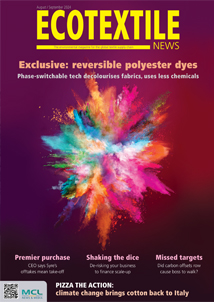SPONSORED CONTENT - Physical traceability presents a possible solution to navigating new legislation around textiles, such as supply chain risk management, accountability, and fostering circular practices.
The European Commission reports that over half of the “voluntary” green claims (53.3%1) by brands were found to be vague, misleading, or lacking a proper justification, while 40%1 were entirely unsubstantiated. As a result, consumer trust in brands has crashed, prompting the development of legislation to address these issues. Many European countries have already established their key objectives and have begun implementing diverse regulations to control claims in consumer goods and enforce due diligence practices.
To mitigate risks related to social and environmental issues, it is critical to ensure product-level information across the entire production process, from raw materials to finished products. An established way to trace products along the supply chain is by adding a DNA marking solution, like Haelixa’s patented technology. By performing forensic tests to detect the presence of the unique DNA markers corresponding to a specific location or raw material, companies can rely on objective data to uphold the identity of the materials throughout the supply chain, allowing them to reduce risk and optimize their sourcing operations.
Accountability is another key concern of the legislation. Companies are now required to disclose their suppliers and manufacturing processes. Value chain transparency enables regulators, non-governmental organizations (NGOs), and consumers to hold companies accountable for their actions. Physical traceability ensures product’s identity preservation, making it easier to identify responsible parties and allowing to take appropriate measures to address any violations or non-compliance.
The sourcing practices of brands and retailers have shifted, as they increasingly engage with suppliers beyond Tier 1. This change is encouraged by various governance offices that advocate for the adoption of responsible sourcing, which prioritize the acquisition of raw materials from ethical and environmentally conscious suppliers. For instance, the Uyghur Forced Labor Prevention Act (UFLPA) imposes restrictions on the entry into the United States of products made from raw materials, such as cotton, from specific regions with questionable labor practices into the borders of the United States. Within this context, physical traceability, like Haelixa’s DNA markers, are a critical tool in enforcing the legislation, since cotton can be blended or exchanged at any processing step. Haelixa’s solution offers security through a key-lock testing verification system, in order to test the DNA applied one must know for which sequence to screen. Each customer uses a unique marker that cannot be removed or tampered with after application. Through traceability, companies can effectively verify the origin and authenticity of their materials, thereby reducing the risk associated with sourcing from unsustainable or even illegal sources.
“Through transparency and accountability, we can build trust amongst stakeholders and support textile companies in their goals of being more ethically and environmentally conscious,” said Gediminas Mikutis, CTO and Co-Founder of Haelixa.
European legislation for textiles emphasizes a need to minimize risks, ensure accountability, and promote sustainability. The legislation drives positive change within the textile industry, making it more transparent, responsible, and environmentally friendly.
By implementing the Haelixa DNA physical traceability solution, companies will be more sustainable in sourcing, utilizing eco-conscious materials, and contributing to the circular economy.
1 Proposal for a Directive on green claims. (n.d.). Environment. https://environment.ec.europa.eu/publications/proposal-directive-green-claims_en
About Haelixa
Haelixa pioneers the development and commercialization of physical product traceability solutions to ensure full end-to-end supply-chain consumer goods traceability, focusing on sustainably manufactured products, such as organic or recycled textiles. Based on DNA markers, the Haelixa technology is physically applied to the material and remains embedded, providing a traceable physical fingerprint from producer to retail.

For more information, please visit https://www.haelixa.com
Media Contact Haelixa
Holly Berger
This email address is being protected from spambots. You need JavaScript enabled to view it.
Phone: +41 44 592 69 00













